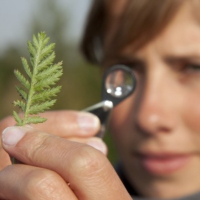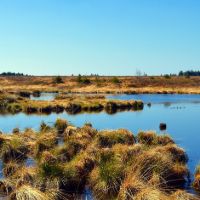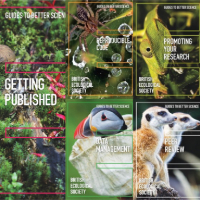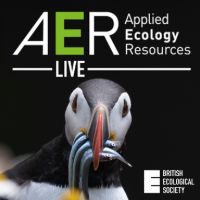Additional resources
Other freely accessible resources across Applied Ecology Resources and the British Ecological Society.
Table of contents
-
Guides
-
Talks and workshops
-
Blogs
-
Evidence in Conservation Teaching
-
Citizen Science Hub
-
Conference Collections
COP26 Peatland Collection | CIEEM 2022 Autumn Conference | Trees for Climate Change, Biodiversity and People
Guides
Guides to Better Science
These free guides promote research excellence and are ideal for those embarking on a career in research or for those needing a useful refresher. Each guide offers plenty of practical tips from a wide range of ecologists from around the world. We welcome ideas for new guides, especially any specific topics aimed at practitioners.
The essentials of effective scientific writing – A revised alternative guide for authors
This free access editorial in Functional Ecology provides a comprehensive guide to effectively communicating your research to the right audience.
Promoting your work
There are a number of ways you can promote your work to a wider audience. We have tips on making your work search engine optimised, creating videos and podcasts amongst others. Find our full list of tips below.
Talks and workshops
AER Live
A series of free, interactive online workshops covering a range of useful topics for applied ecologists and practitioners. The series is ongoing and takes place once a month in Spring and Autumn. You can find details of upcoming workshops as well as recordings of previous workshops below.
Ecology Live
A series of free online talks on the latest ecological research by the British Ecological Society. The first series ran from April to September 2020 and the second series ran from March to May 2021. All workshops are recorded and made available to view below.
Blogs
The Applied Ecologist
The joint blog for Applied Ecology Resources, Ecological Solutions and Evidence and Journal of Applied Ecology. Here you can find summaries of research published in the journals as well as topical contributions from the ecological researchers, practitioners and policymakers that make up our global community.
Other journal blogs
Discover more blog posts published by the other British Ecological Society journals:
- People and Nature
- Functional Ecology
- Journal of Animal Ecology
- Journal of Ecology
- Methods in Ecology and Evolution.
Evidence in Conservation Teaching
The Evidence in Conservation Teaching Initiative is a global effort by conservation educators from around the world. They aim to provide open access materials to teach the core skills of evidence-based conservation, in multiple languages.
Find out more about the Initiative in this blog post and review article published in Ecological Solutions and Evidence.
Citizen Science Hub

A series of training resources, case studies, and contact details for those interested in conducting Citizen Science projects or promoting their own project. Promote your Citizen Science with the British Ecological Society by downloading and submitting this form to the relevant contact provided in the link below.
Conference collections
COP26 Peatland Collection

Our curated collection of peatland and restoration resources for the 2021 United Nations Climate Change Conference, virtual Peatlands Pavilion. Discover reports, original research, blog posts and more – shared by NGOs, government agencies, researchers and other practical ecologists from across the globe.
CIEEM 2022 Autumn Conference

Our curated collection of resources for the CIEEM 2022 Autumn Conference: Delivering a nature positive, carbon negative future. Discover relevant reports and original research across AER and ESE – shared by NGOs, government agencies, researchers and other practical ecologists – to supplement individual talks and themes at the conference.
Trees for Climate Change, Biodiversity and People

Our curated collection of trees and woodland resources for the 2023 Trees for Climate Change, Biodiversity and People symposium. Discover relevant reports and original research across AER and the British Ecological Society journals – shared by AER Members, NGOs, government agencies, researchers and other practical ecologists – to supplement the key themes at the symposium.

